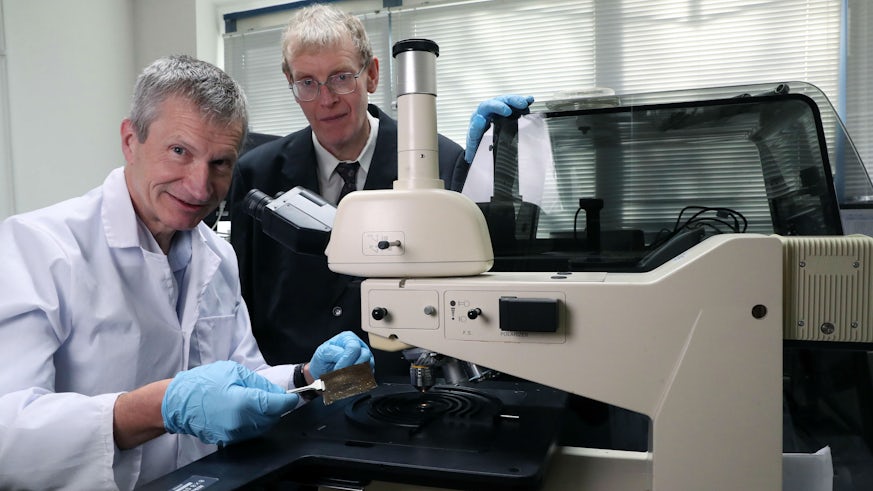Microneedle technology gets green light
25 March 2019

Innovators at Cardiff Medicentre have pioneered microneedle technology that could end certain types of injections.
Picofluidics Ltd – based at Cardiff University’s medtech incubator - has completed rigorous proof of concept tests.
Working with scientists from Coventry University and backed by funding from Innovate UK, Picofluidics is preparing to go to market.
Thinner than human hair, microneedles deliver medicines more effectively than traditional hypodermic needles, often in the form of a patch applied to a patient’s skin.
Trials have confirmed the viability of Picofluidics’ plasma treatment technology, which enables the cost-effective production of collections of many thousands of microneedles.
Jointly run by Cardiff University with Cardiff and Vale University Health Board, Cardiff Medicentre nurtures fledgling biotech and medtech companies.
Dr John Macneil, founder and Managing Director of Picofluidics said, “This milestone has been reached after many years of laboratory work developing a specific type of microneedle that can be produced for approximately one-tenth of the cost of those currently on the market. We are now looking to collaborate with partners to commercialise our technology and roll out the benefits to patients.”
Dr Macneil believes there are many potential uses for its microneedles, from the virtually pain-free injection of medication such as vaccines or insulin, to intradermal fluid removal for diagnostic purposes and the early detection of disease. Their shallow penetration depth means that microneedles are also well suited to deliver treatments to localised skin problems, such as certain forms of skin cancer.
“While many standard injections could potentially be replaced by a microneedle patch, we believe adoption will commence with ‘niche’ applications, such as pain relief where patients can self-administer a patch instead of applying a cream or gel,” said Dr Macneil, who has an MBA from Cardiff Business School.
“We then expect our microneedles to start replacing standard syringes in the delivery of some medicines. Aside from being a more comfortable option for patients, our microneedles produce less waste and potentially offer more control over the dose being delivered. It all makes for better treatment and better outcomes for patients.”
Established in 2009, Picofluidics carries out research and development and manufactures all products at its laboratory at Cardiff Medicentre – the incubation hub for medtech and biotech companies.
Dr Justin John, Business Incubation Officer at Cardiff Medicentre said, “John and his team have been Medicentre tenants since 2010 and it has been a pleasure to support the company in its growth. It is always great to see ideas being brought to life, and I have every confidence that in a few years’ time the technology that Picofluidics has harnessed will be in common use throughout the healthcare community.”
Share this story
Learn how our cutting-edge research, technology transfer, business development and student enterprise drive our vision.



